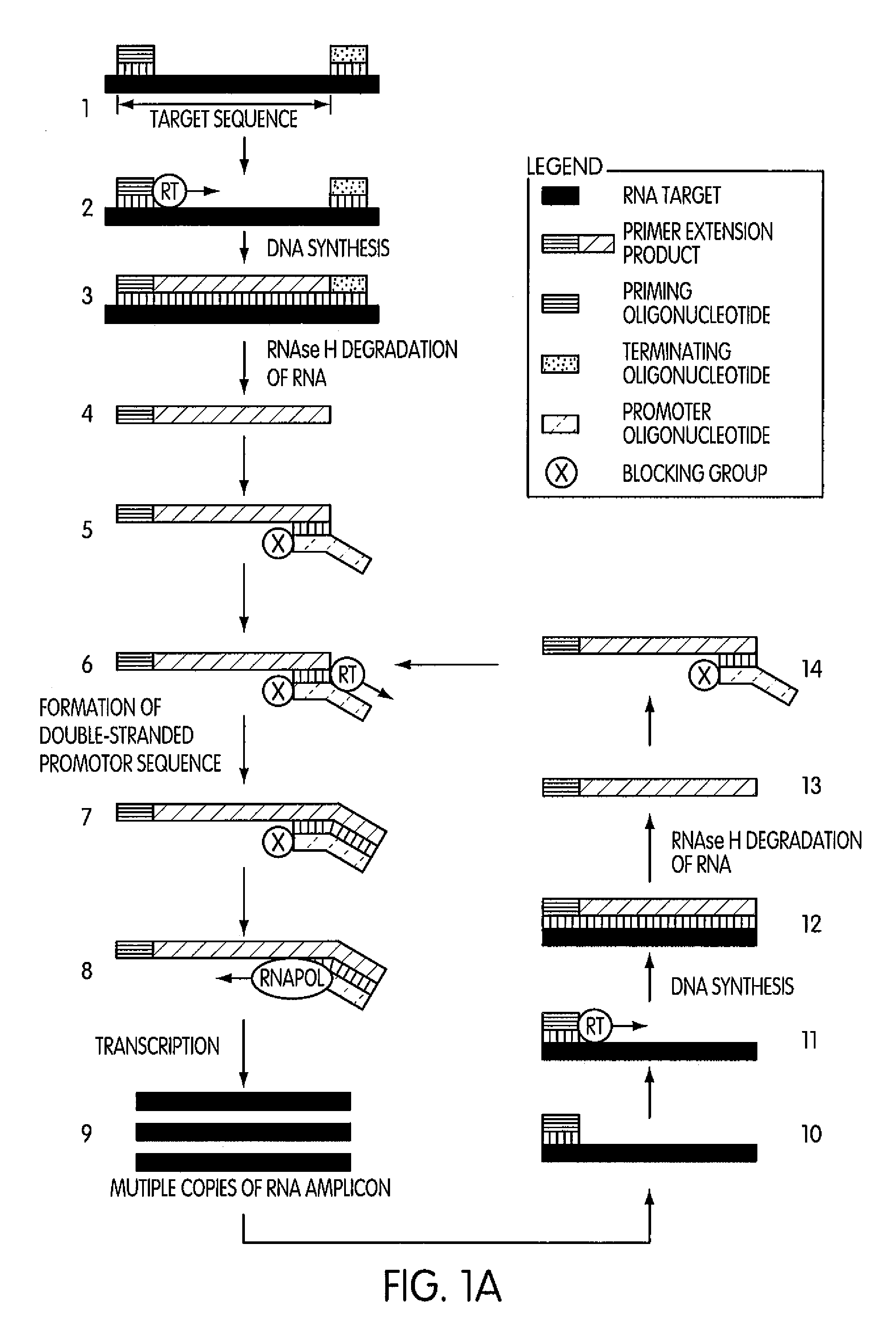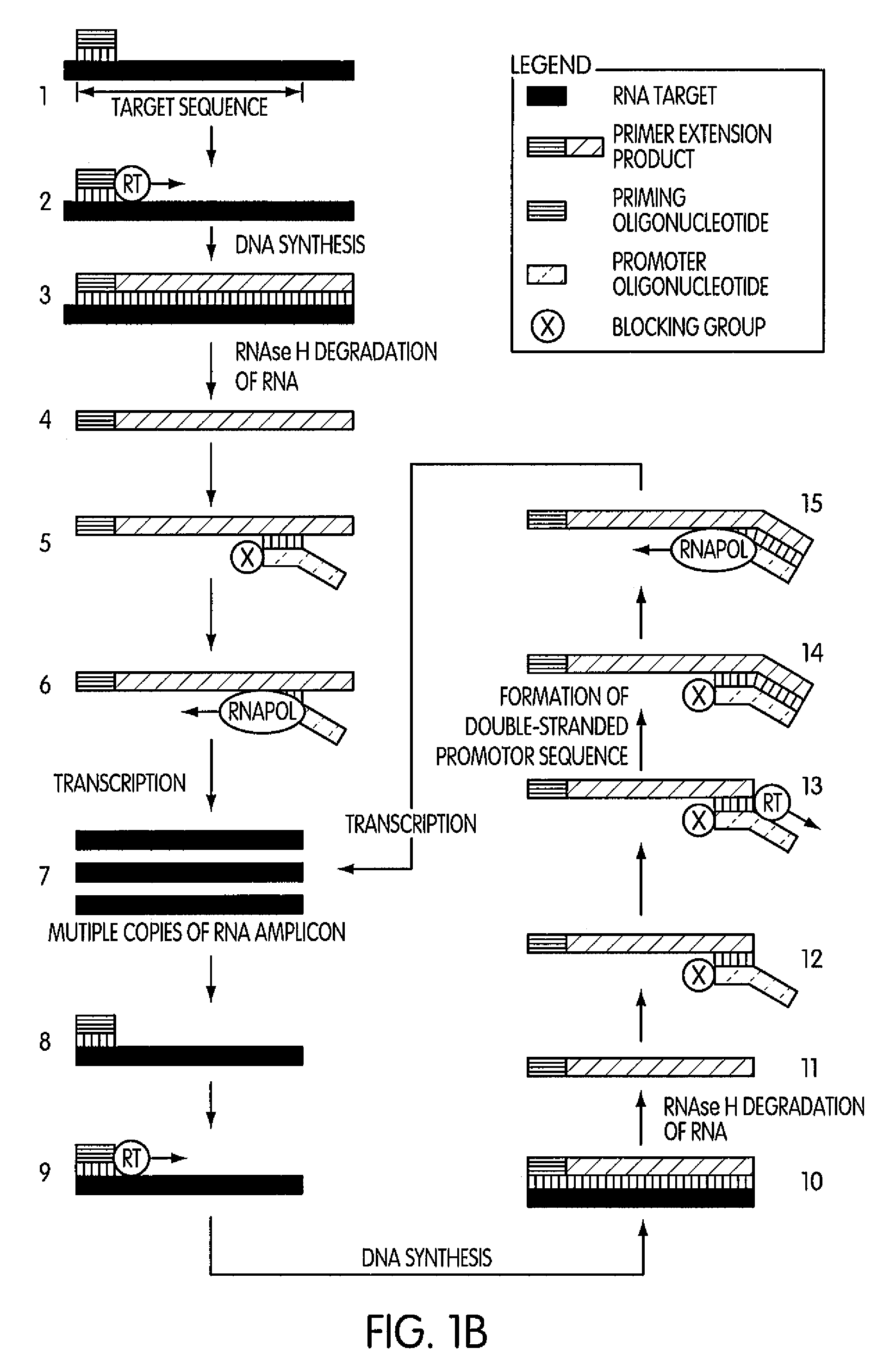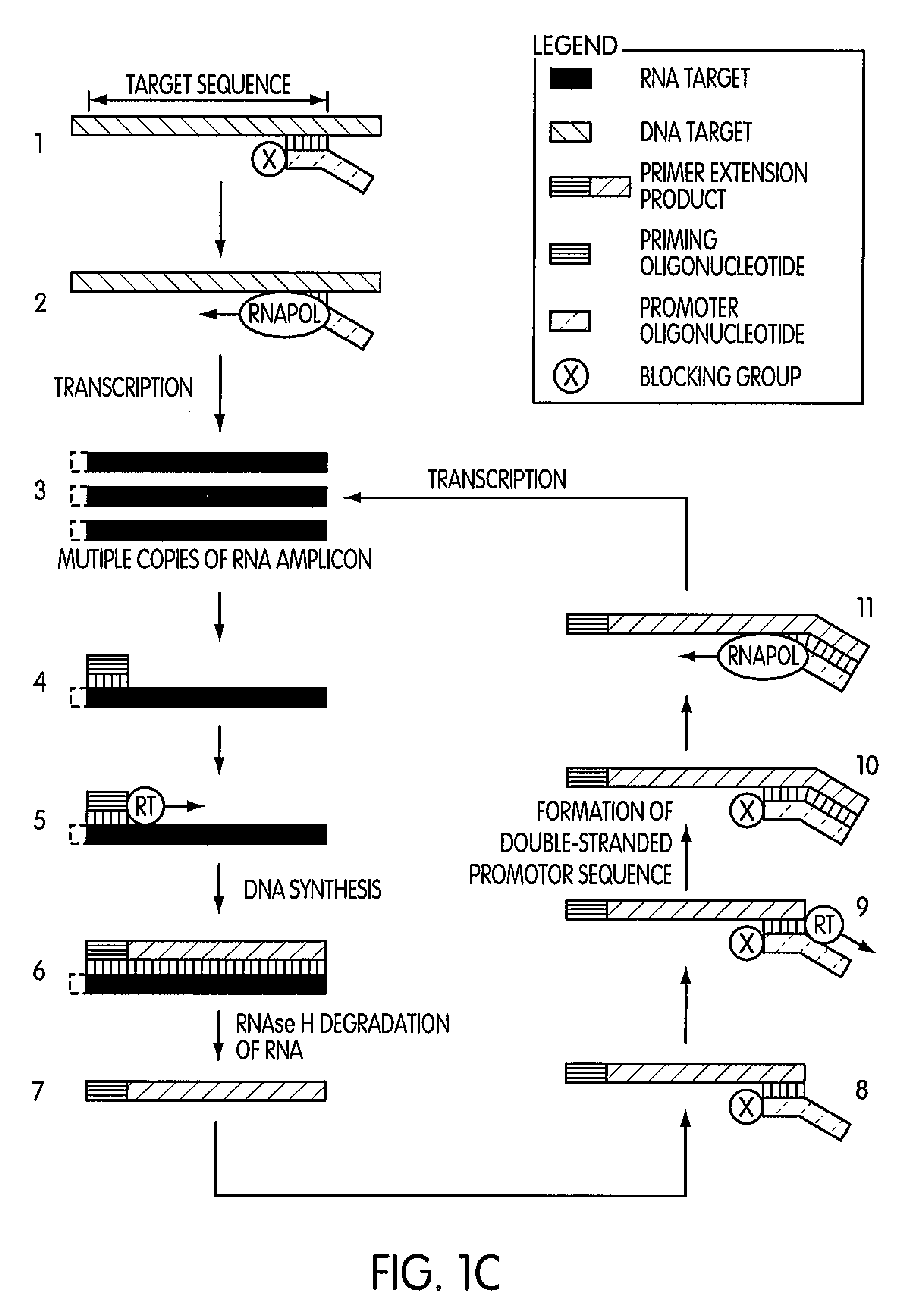Methods and kits for amplifying DNA
a technology of amplifying kits and dna, which is applied in the field of methods and kits for amplifying dna, can solve the problems of complicating the analysis of the amplification reaction by various molecular detection techniques, etc., and achieves the effects of reducing the appearance of side-products, minimizing or substantially eliminating the emergence of side-products
- Summary
- Abstract
- Description
- Claims
- Application Information
AI Technical Summary
Benefits of technology
Problems solved by technology
Method used
Image
Examples
example 1
Comparison of Blocked and Unblocked Promoter Oligonucleotides
[0200]This experiment was conducted to evaluate the specificity of an amplification method according to the present invention in which a region (“the target region”) of a cloned transcript derived from the 5′ untranslated region of the hepatitis C virus (“the transcript”) was targeted for amplification. For this experiment we prepared two sets of priming and promoter oligonucleotides having identical base sequences. The two sets of oligonucleotides differed by the presence or absence of a 3′-terminal blocking moiety on the promoter oligonucleotide. The promoter oligonucleotide in each set targeted the complement of a sequence contained within the 5′-end of the target region and had the base sequence of SEQ ID NO:5 aatttaatacgactcactatagggagactagccatg gcgttagtatgagtgtcgtgcag, where the underlined portion of the promoter oligonucleotide constitutes a T7 promoter sequence (SEQ ID NO:3) and the non-underlined portion represent...
example 2
Reduction in the Formation of Replicating Molecules
[0204]This experiment was designed to evaluate whether the use of a blocked promoter oligonucleotide in an amplification method of the present invention would lead to a reduction in the formation of replicating molecules over a standard transcription-based amplification procedure. Replicating molecules are generally believed to form when the 3′-end of a promoter oligonucleotide forms a hairpin structure and is extended in the presence of a polymerase, thereby forming a double-stranded promoter sequence. Transcription initiated from the double-stranded promoter sequence results in the formation of amplicon containing an antisense version of the promoter sequence.
[0205]In this experiment, we compared the production of replicating molecules in amplification reactions containing promoter oligonucleotides that were either blocked or unblocked at their 3′-terminal ends in the presence or absence of purified rRNA from Mycobacterium tubercu...
example 3
Sensitivity of Amplification Assay Using Blocked Promoter Oligonucleotide and Terminating Oligonucleotide
[0210]This experiment examined the sensitivity of an amplification system according to the present invention in which a region (“the target region”) of purified 23S rRNA from Chlamydia trachomatis (ATCC No. VR-878) (“the target nucleic acid”) was targeted for amplification. Included in this experiment was a promoter oligonucleotide having a 3′-terminal blocking moiety, a priming oligonucleotide, a terminating oligonucleotide having a 3′-terminal blocking moiety, and a labeled detection probe. The promoter oligonucleotide targeted the complement of a sequence contained within the 5′-end of the target region and had the base sequence of SEQ ID NO:22 aatttaatacgactcactatagggagacggagtaagttaagcacgcggac gattgga, where the underlined portion of the promoter oligonucleotide constitutes a T7 promoter sequence (SEQ ID NO:3) and the non-underlined portion represents a hybridizing sequence (...
PUM
| Property | Measurement | Unit |
|---|---|---|
| melting temperature | aaaaa | aaaaa |
| melting temperature | aaaaa | aaaaa |
| temperature | aaaaa | aaaaa |
Abstract
Description
Claims
Application Information
 Login to View More
Login to View More - R&D
- Intellectual Property
- Life Sciences
- Materials
- Tech Scout
- Unparalleled Data Quality
- Higher Quality Content
- 60% Fewer Hallucinations
Browse by: Latest US Patents, China's latest patents, Technical Efficacy Thesaurus, Application Domain, Technology Topic, Popular Technical Reports.
© 2025 PatSnap. All rights reserved.Legal|Privacy policy|Modern Slavery Act Transparency Statement|Sitemap|About US| Contact US: help@patsnap.com



